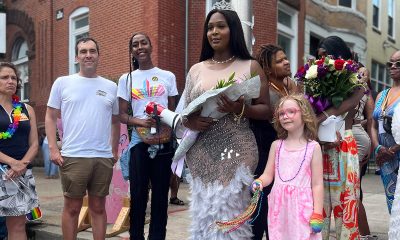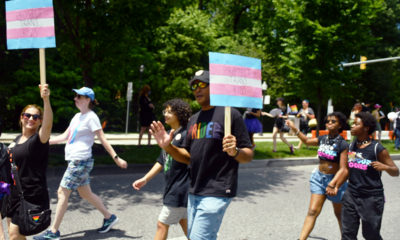National
EEOC ruling on trans rights triggers new call for ENDA
Agency decision doesn’t affect gay, lesbian workers
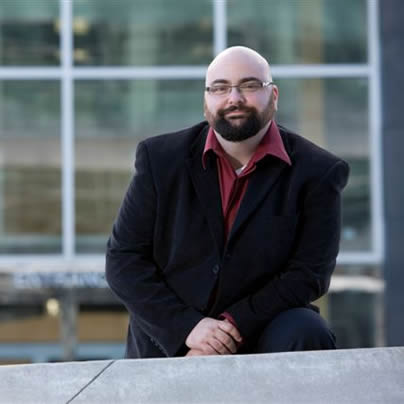
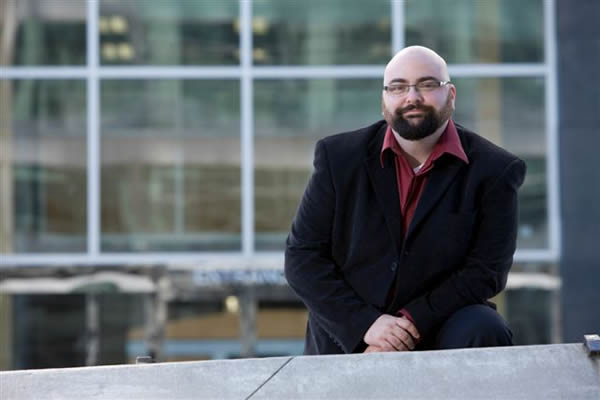
Masen Davis, executive director of the Transgender Law Center (photo courtesy of the Transgender Law Center)
LGBT rights supporters are continuing to press for passage of the Employment Non-Discrimination Act, following a ruling this week from a U.S. agency expanding non-discrimination protections under existing law to include transgender workers.
During a conference call with reporters on Tuesday, Masen Davis, executive director of the Transgender Law Center, emphasized the need for passage of ENDA, legislation that would bar employers from discriminating on the basis of sexual orientation and gender identity.
Davis said ENDA would complement the ruling Monday from the U.S. Equal Employment Opportunity Commission that determined Title VII of the Civil Rights Acts of 1964 covers gender identity.
“We still need ENDA,” Davis said. “This decision is incredibly important. It means that transgender people throughout the United States now have legal recourse … We need to make sure that we couple that with legal protections from Congress and the courts.”
Tobias Wolff, a gay law professor at the University of Pennsylvania, said the ruling doesn’t provide non-discrimination protections for gay and lesbian workers — coverage that ENDA would provide. Additionally, Wolff said transgender workers could face discrimination based on sexual orientation if they’re in a same-sex relationship that an employer finds objectionable.
“If you’re a transgender lesbian, for example, then the question of whether you’re protected from discrimination based upon your gender identity is often put on the table at the same time the question of whether you’re protected from discrimination because you’re a lesbian,” Wolff said. “This ruling speaks to the first question; it doesn’t speak to the second question.”
LGBT organizations such as the Human Rights Campaign and the National Gay & Lesbian Task Force issued statements calling for the passage of ENDA after the EEOC decision was rendered.
HRC President Joe Solmonese said “it is critical” the entire LGBT community have “clear, strong protections against workplace discrimination in federal law.”
“Policymakers must take every step available to them to ensure all workers have a level playing field, including passage of an inclusive Employment Non-Discrimination Act and the adoption of an executive order barring discrimination by federal contractors,” Solmonese said.
EEOC made the ruling after the Obama administration was criticized by many in the LGBT community for deciding at this time against issuing an executive order requiring federal contractors to have non-discrimination policies based on sexual orientation and gender identity. But the advocates say they believe the two decisions are unrelated.
Davis said he “doesn’t see any connection” between the White House decision not to issue the executive order and the EEOC ruling affirming transgender workers’ rights.
“This case has been in process for over a year now,” Davis said. “This has been with EEOC for several months. The EEOC is an independent agency and the decision was made by the five appointed commissioners.”
That observation was verified by the White House. Shin Inouye, a White House spokesperson, said the EEOC “reached their conclusion on their own.”
Davis said the decision is almost certain to stand because it cannot be appealed to a higher court or anywhere else because the federal Bureau of Alcohol, Tobacco, Firearms and Explosives would have to show the decision was “clearly erroneous.”
“This is the final word,” Davis said. “ATF could ask for reconsideration by the commission, but it’s very unlikely they would even ask for it … The agency would have to show that the decision was clearly erroneous in its interpretation of the law, which was plainly not the case [given] the EEOC issued the decision in light of the strong trans federal court decisions.”
However, Wolff noted that the Supreme Court could get involved in the issue if lower federal courts make their own decisions on whether Title VII should apply to transgender workers.
“I think it’s a little premature to say that this is a settled issue among the lower federal courts,” Wolff said. “I think it is correct to say that the trend among lower courts is … recognizing anti-trans discrimination is sex discrimination and that that is certainly the better argument. The question of whether or not the court gets involved will probably depend what types of opinions we see coming out of lower federal courts.”
The ruling will allow for the hiring of Mia Macy, a transgender woman who allegedly was denied a job as a ballistics technician at the ATF.
“That’s all she’s ever wanted,” Davis said. “She wants the ability use her skills and her talents and her tremendous experience … to serve as a member of ATF.”
Ilona Turner, legal director for the Transgender Law Center, said her organization would also seek the restitution of back pay, which could be resolved through settlement or the agency issuing a response to the discrimination complaint and ordering the appropriate remedy.
“As she mentioned, she lost her house as a result of this,” Turner said. “Her family has been seriously affected financially by what she went through.”
Wolff also spoke favorably about the presence on the EEOC of Chai Feldblum, a lesbian who’s had a long history of LGBT activism — authoring ENDA and fighting against the institution of “Don’t Ask, Don’t Tell” in 1993.
“She is one of the most distinguished and brilliant minds of our generation on discrimination law and statutes that are aimed at prohibiting discrimination,” Wolff said. “I think that one can see her expertise certainly, among others, reflected in the analysis of this opinion. When the president selected her for this post, I think it represented a strong statement on the part of his administration about the importance of good and sensible thinking on anti-discrimination law enforced in the statutes like Title VII. It is because we have such good people on the EEOC that we see a ruling like this.”
CORRECTION: An initial posting of this article misattributed a quote about Chai Feldblum. The Blade regrets the error.
National
House Republicans propose steep cuts in federal AIDS budget
Advocacy groups say move would eliminate ‘Ending HIV Epidemic’ initiative
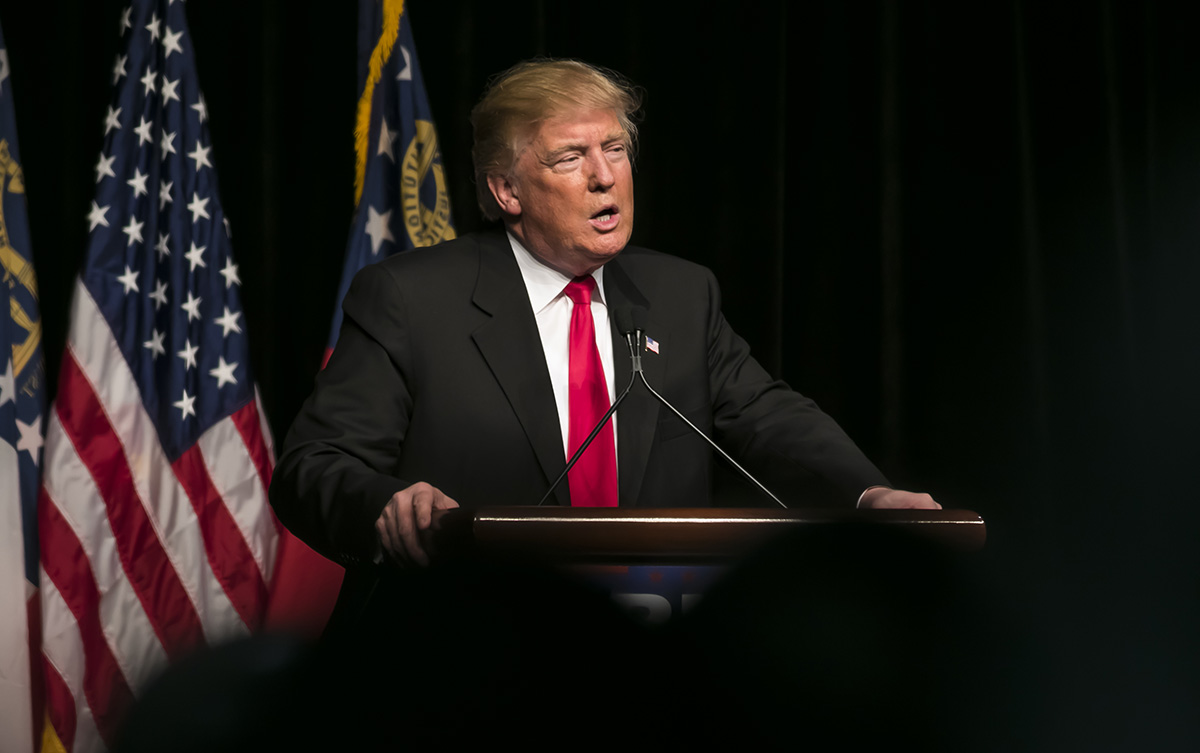
The Republican-controlled U.S. House Subcommittee on Labor, Health, and Human Services, Education, and Related Agencies approved a spending bill on June 26 that calls for cutting at least $419 million from federal AIDS programs that AIDS activists say would have a devastating impact on efforts to greatly reduce the number of new HIV infections by 2030.
The subcommittee’s proposed bill, which includes billions of dollars in cuts in a wide range of other federal health, education, and human services related programs, is scheduled to be considered by the full House Appropriations Committee on July 10. Officials with AIDS advocacy groups say they are hopeful that the full committee, like last year, will refuse to approve the proposed cuts in the AIDS budget.
The proposed GOP cuts would eliminate $214 million from the U.S. Centers for Disease Control and Prevention’s HIV prevention programs, $190 million from the Ryan White HIV/AIDS Program, and $15 million from the Department of Health and Human Services Secretary’s Minority HIV/AIDS Program.
Activists say the impact of those cuts would kill the federal government’s Ending the HIV Epidemic initiative, which among other things, calls for reducing the number of new HIV infections in the U.S. by 75 percent by 2025 and by 90 percent by 2030. The activists point out that ironically the Ending the HIV Epidemic initiative was launched during the administration of President Donald Trump.
“Instead of providing new investments in ending HIV by increasing funding for testing, prevention programs, such as PrEP, and life-saving care and treatment, House Republicans are again choosing to go through a worthless exercise of cutting programs that the American people depend on and will never pass,” said Carl Schmid, executive director of the HIV + Hepatitis Policy Institute.
“While we vigorously fight these cuts, we look forward to working with the entire Congress in a bipartisan fashion on spending bills that can actually become law,” Schmid said in a statement.
Schmid noted that the bill also includes provisions known as “policy riders” that would take away rights and protections from women, such as access to birth control and abortion, and for minorities, including LGBTQ people.
According to a statement released by the office of Rep. Rosa DeLauro (D-Conn.), who is the ranking minority member of the House Appropriations Committee, one of the policy riders would “block the Biden administration’s policies to ensure nondiscrimination on the basis of gender identity and sexual orientation.’ The statement says another policy rider would “prevent policies or programs intended to promote diversity, equality, or inclusion.”
Most political observers believe the Democratic-controlled U.S. Senate would also kill the GOP proposed policy riders and cuts in the AIDS budget if the full Republican-controlled House were to approve the budget bill passed by the appropriations subcommittee.
Rep, Tom Cole (R-Okla.), who serves as chair of the full House Appropriations Committee, released a statement on June 27 defending the subcommittee’s bill and its proposed spending cuts. “The bill provides appropriate and fiscally responsible funding to ensure these departments can continue to perform their core missions while also acknowledging the fiscal realities facing our nation,” he said.
“Importantly, the bill pushes back on the Biden administration’s out-of-touch progressive policy agenda, preventing this White House from finalizing or implementing controversial rules or executive orders,” Cole said in his statement. “It also preserves long standing bipartisan policy provisions protecting the right to life.”
U.S. Supreme Court
Concern over marriage equality in US grows two decades after first Mass. same-sex weddings
Gay and lesbian couples began to marry in Bay State in 2004

Two decades after Massachusetts became the first state to legalize same-sex marriage, a new study reveals both significant progress and ongoing challenges for married LGBTQ couples in the U.S., with a growing sense of insecurity about the future of their rights.
The Williams Institute at UCLA School of Law surveyed 484 married same-sex couples from all 50 states and D.C. The study, released Monday, marks the 20th anniversary of legal same-sex marriage in the U.S.
Researchers found that 93 percent of respondents cited love as a primary reason for marrying, with 75 percent also mentioning legal protections. Over 83 percent reported positive changes in their sense of security, and 74.6 percent noted improved life satisfaction since marrying.
However, the study also highlighted persistent discrimination and growing concerns about the future. About 11 percent of couples who had a wedding reported facing prejudice during the planning process.
Alarmingly, nearly 80 percent of respondents expressed concern about the potential overturning of the 2015 Obergefell v. Hodges decision, which legalized same-sex marriage nationwide. This anxiety has been exacerbated by initiatives like Project 2025, a conservative policy blueprint that some fear could roll back LGBTQ rights if implemented.
The possibility of a former President Donald Trump victory in the upcoming election has further intensified these concerns. Many respondents cited Trump’s previous U.S. Supreme Court appointments and his statements on LGBTQ issues as reasons for their apprehension. One participant stated, “The thought of another Trump presidency keeps me up at night. We’ve come so far, but it feels like our rights could be stripped away at any moment.”
The current political climate has 29 percent of respondents considering moving to another state, with 52.9 percent citing socio-political concerns as a primary reason. This reflects a growing sense of insecurity among LGBTQ couples about their rights and freedoms.
Brad Sears, founding executive director of the Williams Institute, noted, “The data clearly show that marriage equality has had a profound positive impact on same-sex couples and their families. However, it also reveals ongoing challenges and serious concerns about the future of these rights in light of current political trends and the upcoming election.”
Christy Mallory, legal director at the Williams Institute and lead author of the study, added, “This research provides crucial insights into the lived experiences of same-sex couples two decades after marriage equality began in the U.S. The high level of concern about potential loss of rights underscores the continued importance of legal protections and public support for LGBTQ+ equality.”
The study found that 30 percent of surveyed couples have children, with 58.1 percent of those parents reporting that marriage provided more stability for their families. However, many of these families now worry about the security of their legal status in the face of potential policy changes and shifting political landscapes.
As the nation reflects on two decades of marriage equality, the study underscores both the transformative power of legal recognition and the ongoing need for vigilance in protecting LGBTQ+ rights. The findings highlight the complex reality faced by same-sex couples in America today: Celebrating hard-won progress while grappling with uncertainty about the future, particularly in light of upcoming political events and potential shifts in leadership.
State Department
State Department hosts meeting on LGBTQ rights and foreign policy
Event took place before Pride Month reception

Secretary of State Antony Blinken on Thursday hosted a group of LGBTQ activists and politicians from around the world at the State Department.
The event — described as a “Convening on U.S. Foreign Policy: National Security, Inclusive Development, and the Human Rights of LGBTQI+ Persons” — took place before the State Department’s annual Pride Month reception. Participants included:
• Jessica Stern, the special U.S. envoy for the promotion of LGBTQ and intersex rights
• U.S. Ambassador to the U.N. Linda Thomas-Greenfield
• U.S. Trade Representative Katherine Tai
• U.S. Ambassador to India Eric Garcetti
• Suzanne Goldberg, senior advisor to the Under Secretary of State for Civil Security, Democracy, and Human Rights
• Under Secretary of State for Civilian Security, Democracy, and Human Rights Uzra Zeya
• U.S. Agency for International Development Senior LGBTQI+ Coordinator Jay Gilliam
• USAID Counselor Clinton D. White
• National Security Council Senior Director for Democracy and Human Rights Kelly Razzouk
• Assistant U.S. Secretary of Health Adm. Rachel Levine
• National Security Council Human Rights Director Jess Huber
• U.N. Assistant Secretary General for Human Rights Ilze Brandt Kehris
• Icelandic Ambassador to the U.S. Bergdís Ellertsdóttir
• Council for Global Equality Co-Executive Director Mark Bromley
• Outright International Senior Advisor for Global Intersex Rights Kimberly Zieselman
• Essy Adhiambo, executive director of the Institute for Equality and Non Discrimination in Kenya
• Pau González, co-chair of Hombres Trans Panamá and PFLAG-Panamá
“Forty-five years ago, thousands gathered in D.C. in what became the first national march for LGBTQI+, demanding their voices be heard,” said Thomas-Greenfield in a post to her X account that showed her speaking at the event. “We must continue to carry forward the spirit of these pioneers and fight for equal rights and dignity for all.”
Forty-five years ago, thousands gathered in DC in what became the first national march for LGBTQI+, demanding their voices be heard.
We must continue to carry forward the spirit of these pioneers and fight for equal rights and dignity for all. 🏳️🌈🏳️⚧️ pic.twitter.com/oph2Ahmfhq
— Ambassador Linda Thomas-Greenfield (@USAmbUN) June 28, 2024
President Joe Biden in 2021 signed a memo that committed the U.S. to promoting LGBTQ and intersex rights abroad as part of his administration’s overall foreign policy.
“LGBTQI+ rights are human rights,” said Blinken. “Our government has a responsibility to defend them, to promote them — here and everywhere.”
Blinken noted consensual same-sex sexual relations remain criminalized in 64 countries, with the death penalty in 11 of them.
He specifically highlighted Uganda’s Anti-Homosexuality Act and Hungarian Prime Minister Viktor Orbán’s government’s “smearing scapegoating, stigmatizing LGBTQI+ persons — vilifying them with degrading labels, denying them equal rights, normalizing violence against them.” (Gay U.S. Ambassador to Hungary David Pressman this month marched in the annual Budapest Pride parade.)
Blinken noted Iraqi MPs earlier this year “passed legislation that punishes same-sex relations with up to 15 years in prison.” He also pointed out that Indonesian lawmakers approved a new criminal code banning extramarital sex.
“In a nation where same-sex couples cannot marry, these laws effectively make all same-sex conduct illegal and they undermine privacy for all Indonesians,” said Blinken.
“We’re defending and promoting LGBTQI+ rights around the world,” he said.
Blinken noted seven countries — Barbados, St. Kitts and Nevis, Antigua and Barbuda, Dominica, Namibia, Singapore, the Cook Islands — have decriminalized consensual same-sex sexual relations over the last two years. He also highlighted Greece, Liechtenstein, and Thailand this year extended marriage rights to same-sex couples, and other countries are banning so-called “conversion therapy.”
“These achievements are possible because of incredibly courageous human rights defenders and government partners on the ground, but I believe America’s support is indispensable,” said Blinken. “When we engage — sometimes publicly, sometimes privately, sometimes both — when we share our own knowledge and experience, we can and we do achieve change.”
Blinken also announced the U.S. now considers sexual orientation and gender identity are part of the International Covenant on Civil and Political Rights that took effect in 1976.
“This is one of the key treaties committing nations to upholding universal rights,” he said.
“In our regular reporting to the council on human rights, we will continue to include incidents of discrimination or abuse committed against LGBTQI+ persons, now with the clear framework of this well-supported interpretation,” added Blinken. “That will further empower our efforts.”
Blinken reiterated this point and the Biden-Harris administration’s commitment to the promotion of LGBTQ and intersex rights abroad when he spoke at the State Department’s Pride Month event.
“Defending, promoting LGBTQI+ rights globally is the right thing to do, but beyond that, it’s the smart and necessary thing to do for our country, for our national security, for our well-being,” he said.
-

 Canada2 days ago
Canada2 days agoToronto Pride parade cancelled after pro-Palestinian protesters disrupt it
-

 Theater5 days ago
Theater5 days agoStephen Mark Lukas makes sublime turn in ‘Funny Girl’
-

 Baltimore4 days ago
Baltimore4 days agoDespite record crowds, Baltimore Pride’s LGBTQ critics say organizers dropped the ball
-

 Sports4 days ago
Sports4 days agoHaters troll official Olympics Instagram for celebrating gay athlete and boyfriend

